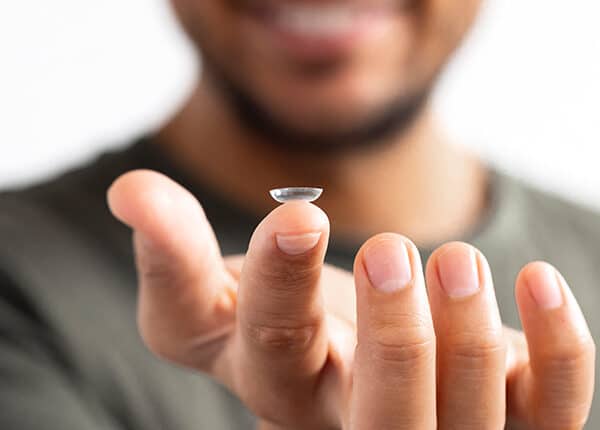
The Joy of Spring Allergy Season
20 SEP 2021
Eye health
Spring is arguably our most loved season. The days are warmer, flowers are blooming, and the bees are busy pollinating. But, for many, spring can be miserable.
For nearly 20 per cent of people in Australia springtime is hay fever (allergic rhinitis) season – sneezing combined with a blocked, itchy, watery or runny nose.
When exposed to allergens in spring such as pollens from flowers, grasses and weeds, allergic rhinitis causes inflammation of the sinuses with the vast majority of people also suffering from seasonal allergic conjunctivitis.
What are the symptoms of allergic conjunctivitis?
In spring, people who have allergic conjunctivitis can suffer from eye redness, swelling, conjunctivitis, eye itchiness and a burning feeling in the eye or the eyes can become watery.
Allergic conjunctivitis is not contagious so cannot be passed on from person to person.
What are the types of allergic conjunctivitis?
There are two main types of allergic conjunctivitis – Seasonal allergic conjunctivitis (SAC) and perennial allergic conjunctivitis (PAC). These are usually grouped together and affect 15 to 20% of the global population.
SAC is more common and, as the name suggests, occurs seasonally in spring and summer when pollen levels are highest. PAC symptoms occur any time of the year as a result of exposure to non-seasonal allergens such as cigarette smoke and dust mites.
What can you do about itchy eyes?
When your eyes feel itchy from hay fever your first instinct is to rub them. First off, don’t itch your eyes with your fingers.
Rubbing your eyes is one of the single worst things you can do to your eyes.
Our hands, as we know from the plethora of communication about cross infection over the past year and a half, are harbingers of disease.
As public health messages highlight, our hands contain millions of bacteria and viruses that can cause respiratory infections from the sniffles to the flu and, as we now know, COVID-19.
Proper hand washing will help prevent the spread of these viruses from a person to themselves and to others.
It is hard to not rub your eyes when they are itchy, but that immediate relief can be detrimental down the track. We feel a momentary relief when we rub our eyes because we stimulate our lacrimal glands which produce tears that lubricate and soothe the eyes.
If we continuously rub our eyes or rub them too hard, we can damage the cornea, the clear front window of the eye. We can also break the tiny blood vessels around the eyes causing dark circles.
The more pressure we place on our eyes with our fingers, the more likely our eyes will get red and puffy.
“Worse still: too much irritation of the cornea can cause or perpetuate harmful conditions; one such condition is the little-known keratoconus,” warns optometrist, Dr. Luke Arundel, Chief Clinical Officer, Optometry Australia.
What is Keratoconus?
Keratoconus affects 1 in 2,000 people. It is a “progressive, degenerative eye disease that thins the cornea.
“The cornea can then start to bulge or protrude outward in a cone-like shape. This conical shape distorts how the cornea refracts light, which can result in blurred vision,” says Dr. Arundel.
Keratoconus symptoms include blurred or cloudy vision, light sensitivity, halos around lights and the need to change your spectacle prescription frequently.
There is no cure for keratoconus, however, depending on the severity of the condition, specially-made contact lenses and spectacles can be used to help improve vision.
If you suffer from eye allergies, it is going to be hard to not rub your eyes when they are itchy but it important for the long term health of your eyes to not rub them.
When you have irritated eyes, they can respond to simple eye treatments to effectively reduce your suffering, including cold compress to bathe your eyes or lubricating eye drops which can be used to reduce itching and swelling and to clean the allergens out of the tear film of the eyes.
If problems persist, contact your local Eyecare Plus optometrist to discuss treatment options.
Book an appointment with
your local Eyecare Plus
Optometrist today.

